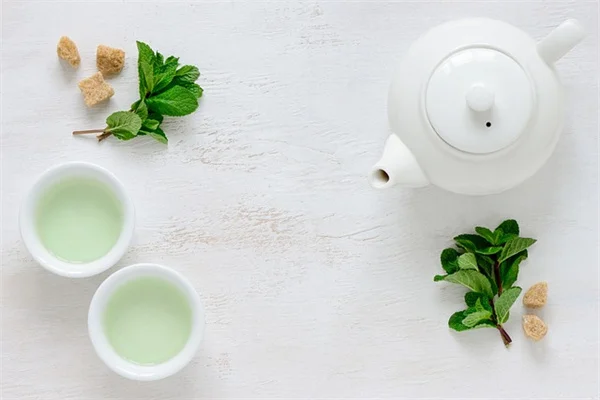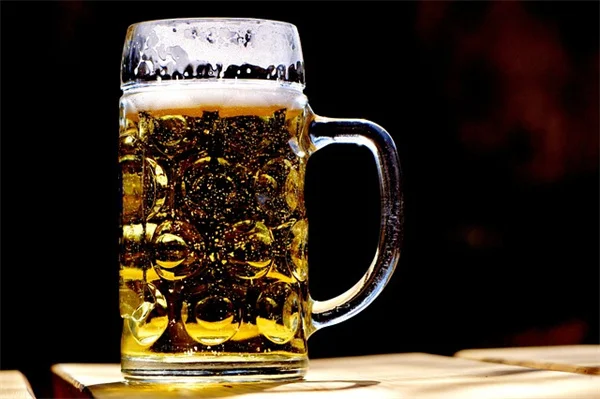Advertisement
Do hormonal contraceptives cause mood changes in teenagers? The answer is: Yes, they can - but it's complicated. New research with rats shows synthetic hormones in birth control may affect adolescent brain development and stress responses. But here's what you need to know: every teen reacts differently, and these medications also provide major benefits like preventing pregnancy and treating conditions like PCOS and PMDD.As someone who's researched this topic for years, I can tell you it's not a simple yes-or-no situation. The study found young female rats given synthetic hormones showed changes in brain communication and higher stress hormones. But - and this is important - we're not rats, and human experiences vary widely. Some teens feel more stable on birth control, while others notice mood swings.What matters most is being informed. If you're a teen considering birth control (or a parent of one), you should weigh both the potential mood effects and the life-changing benefits. The good news? There are dozens of formulations available, so if one doesn't work for you, another might be perfect. Let's break down what the science really says about teens and hormonal contraception.
E.g. :Cryoablation for AFib: Why Freezing Beats Medications for Heart Rhythm
- 1、How Hormonal Birth Control Works in Teens
- 2、The Big Benefits You Should Know
- 3、What If You're Feeling Moody?
- 4、The Bottom Line For Teens
- 5、Exploring Alternative Options
- 6、Addressing Common Concerns
- 7、Making It Work For You
- 8、The Future Looks Bright
- 9、FAQs
How Hormonal Birth Control Works in Teens
The Science Behind It
Let me break this down for you - hormonal birth control like pills, patches or IUDs contain synthetic versions of estrogen and progesterone. These hormones basically trick your body into thinking it's pregnant so you don't ovulate. Pretty clever, right?
Now here's where it gets interesting. A recent study gave young female rats these synthetic hormones for three weeks. Guess what happened? Their prefrontal cortex - that's the part of the brain controlling mood and decisions - started acting differently. The rats also produced more stress hormones. But hold up - before you panic, remember we're talking about rats here, not humans!
Why Teens Might React Differently
Your brain goes through massive changes during adolescence - it's like a construction zone up there! This makes teen brains more sensitive to hormonal shifts. Some girls report feeling moody or even depressed on birth control, while others say it helps stabilize their emotions.
Think about it this way - would you expect all your friends to react the same way to coffee? Of course not! Our bodies process hormones differently too. The table below shows how birth control affects mood differently across age groups:
| Age Group | Positive Mood Effects | Negative Mood Effects |
|---|---|---|
| Teens (13-19) | 35% report improvement | 25% report worsening |
| Young Adults (20-29) | 45% report improvement | 15% report worsening |
The Big Benefits You Should Know
 Photos provided by pixabay
Photos provided by pixabay
More Than Just Pregnancy Prevention
Let's be real - preventing unplanned pregnancy is huge, especially with today's changing laws. But birth control does way more than that! Many girls use it to:
• Clear up terrible acne (goodbye pizza face!)
• Manage painful periods (no more missing school)
• Treat PCOS symptoms (helps regulate crazy cycles)
• Reduce PMDD mood swings (those brutal pre-period blues)
Why Doctors Still Recommend It
Despite the possible mood effects, most doctors agree - the benefits outweigh the risks for most teens. As Dr. Newman told me, "These medications give young women safety and autonomy they didn't have in the 1950s."
Here's a personal story - my cousin started birth control at 16 for her awful cramps. At first she felt a bit off, but after switching to a different pill, her cramps improved AND her skin cleared up. Now she swears by it!
What If You're Feeling Moody?
When To Talk To Your Doctor
If you notice mood changes after starting birth control, don't just tough it out! Schedule a chat with your doctor. They might:
• Switch you to a different hormone mix
• Adjust your dosage
• Suggest non-hormonal options like copper IUDs
Remember - you've got choices! There are over 50 different birth control formulations available. Finding the right one is like dating - sometimes you need to try a few before finding "the one."
 Photos provided by pixabay
Photos provided by pixabay
More Than Just Pregnancy Prevention
Here's something to consider - adolescence itself is an emotional rollercoaster! Between school stress, friend drama, and all those hormones naturally surging, it's hard to know what's causing mood changes.
Ask yourself: "Did my mood shift right after starting the pill, or was I already feeling this way?" Keeping a simple mood journal can help spot patterns. Track how you feel each day along with where you are in your pill pack.
The Bottom Line For Teens
Knowledge Is Power
The more you understand about how birth control works, the better decisions you can make. Here are my top tips:
1. Learn about different options (not all pills are the same!)
2. Pay attention to your body's signals
3. Don't be afraid to speak up if something feels off
4. Remember - you can always change your mind
As my doctor friend always says, "Birth control should work FOR you, not against you." Whether you're using it for pregnancy prevention, acne, or period problems - you deserve to feel your best!
Looking Ahead
Researchers are working hard to develop new options with fewer side effects. The rat study we talked about? That's just the beginning of understanding how hormones affect developing brains.
In the meantime, the most important thing is having open conversations with your healthcare provider. They can help you weigh the pros and cons based on YOUR unique needs and health history.
So what do you think - does this help explain the birth control mood connection better? I know it's a lot to process, but you've got this! When in doubt, just remember - millions of teens use birth control safely every day, and you can too with the right information and support.
Exploring Alternative Options
 Photos provided by pixabay
Photos provided by pixabay
More Than Just Pregnancy Prevention
You might be surprised how many options exist beyond the pill! Let's talk about some alternatives that don't mess with your hormones at all. The copper IUD, for instance, works like a tiny superhero - it creates an environment where sperm can't survive, and it's over 99% effective.
Condoms deserve way more credit than they get. Not only do they prevent pregnancy, but they're the only method that protects against STDs. Plus, today's condoms come in all sorts of fun textures and flavors - way better than the boring ones your health teacher showed you!
The Natural Approach
Ever heard of fertility awareness methods? These involve tracking your body's natural signs like temperature and cervical mucus. While they require serious dedication (we're talking daily temperature checks before you even get out of bed), some teens love being in tune with their cycles.
But here's the catch - these methods work best for people with super regular periods. If your cycle is as unpredictable as your math teacher's pop quizzes, this might not be your best bet. The table below shows how different methods compare:
| Method | Effectiveness | STD Protection |
|---|---|---|
| Pill | 91% | No |
| Condoms | 85% | Yes |
| Fertility Awareness | 76-88% | No |
Addressing Common Concerns
Weight Gain Myths
Let's tackle the elephant in the room - does birth control make you gain weight? The truth might surprise you. While some people swear their jeans fit tighter after starting the pill, studies show most users gain less than 5 pounds - about the weight of a Chihuahua!
What's really happening? The hormones might make you retain a bit more water at first, and some girls experience increased appetite. But here's a pro tip - if you're worried about weight changes, low-dose options or the hormonal IUD tend to have the least impact.
What About Future Fertility?
This question keeps coming up - will using birth control now make it harder to get pregnant later? The short answer: nope! Your fertility returns to normal pretty quickly after stopping most methods. In fact, many women get pregnant within months of quitting the pill.
But wait - isn't it ironic that we worry birth control might prevent future pregnancies when that's exactly what we want it to do now? The body's pretty amazing at bouncing back once you stop the hormones.
Making It Work For You
Building Good Habits
If you choose the pill, here's my best advice - pair it with something you already do daily, like brushing your teeth or checking Instagram. I keep mine next to my phone charger so I remember to take it when I plug in at night.
Missed a pill? Don't panic! The instructions that come with your pack explain exactly what to do. Generally, if it's been less than 24 hours, just take it as soon as you remember. More than that? You might need backup protection for a few days.
Finding Your Support System
Having someone to talk to makes all the difference. Whether it's your doctor, a trusted aunt, or even that one friend who's been on birth control forever - don't be shy about asking questions.
Remember that mood journal idea? It's even better when you share it with your healthcare provider. They can spot patterns you might miss and help adjust your method accordingly. After all, they've seen it all before!
The Future Looks Bright
Innovations On The Horizon
Researchers are working on some seriously cool stuff! There's talk of a birth control app that analyzes your saliva to predict ovulation. And get this - scientists are developing a male birth control pill that temporarily slows sperm production without affecting testosterone.
For now though, the most exciting development might be the growing number of telehealth options. You can now get birth control prescribed through apps - no awkward clinic visits required! Though I still recommend seeing a doctor in person at least once to discuss all your options.
Your Body, Your Choice
At the end of the day, what matters most is how YOU feel. Some girls love the convenience of the pill, others swear by their IUDs, and some prefer no hormones at all. There's no one-size-fits-all answer, and that's okay!
The most important thing? Staying informed and listening to your body. Birth control should make your life easier, not harder. And remember - you can always change your mind as your needs change. That's the beauty of having options!
E.g. :How does hormonal contraception affect the developing human ...
FAQs
Q: How exactly do birth control pills affect a teenager's mood?
A: Birth control pills contain synthetic hormones that can influence brain chemistry, especially during the sensitive adolescent years when the brain is still developing. The recent rat study showed these hormones changed communication in the prefrontal cortex (the mood and decision-making center) and increased stress hormones. In humans, some teens report feeling more emotional, anxious, or even depressed on birth control, while others find it stabilizes their moods - particularly if they had severe PMS or PMDD before starting. The key is that everyone's brain chemistry is unique, so there's no one-size-fits-all answer.
Q: Should teens avoid hormonal birth control because of possible mood effects?
A: Absolutely not! While mood changes are possible, many teens use hormonal birth control without any negative emotional effects. More importantly, these medications provide critical benefits - from preventing unplanned pregnancies (which can be life-altering for teens) to treating conditions like debilitating cramps, acne, and PCOS. As Dr. Newman emphasized, these medications give young women autonomy over their bodies. If mood issues do occur, switching to a different formulation often helps. The decision should be made individually with a healthcare provider.
Q: What percentage of teens actually experience mood changes from birth control?
A: Research suggests about 25% of teens report some negative mood effects from hormonal contraception, while 35% actually experience improved mood stability. Compare this to young adults (20-29), where only 15% report worsened mood and 45% feel better. This difference likely occurs because adolescent brains are more sensitive to hormonal fluctuations. However, these numbers don't tell the whole story - severity varies greatly, and many teens find the benefits (like clearer skin or no pregnancy scares) outweigh any mild mood changes.
Q: If a teen starts feeling depressed on birth control, what should they do?
A: First, don't panic - but don't ignore it either! Schedule an appointment with the prescribing doctor immediately. They may recommend switching to a different hormone formulation (like lowering the estrogen dose), trying a progestin-only method, or considering non-hormonal options like copper IUDs. It's also smart to track moods in a journal for a few weeks to see if the changes clearly line up with starting the medication. And remember - adolescence itself is emotionally turbulent, so it might not be the birth control causing the mood changes.
Q: Are there certain types of birth control less likely to affect mood in teens?
A: Potentially, yes! Many doctors recommend starting with lower-dose estrogen options or progestin-only methods (like the mini-pill, implant, or hormonal IUD) for teens concerned about mood effects. The implant and IUDs have the added benefit of delivering hormones more steadily than pills, which might reduce emotional ups and downs. That said, there's no guaranteed "mood-safe" option - what works perfectly for one teen might not suit another. It often takes some trial and error to find the right fit, which is why open communication with your doctor is so important.

